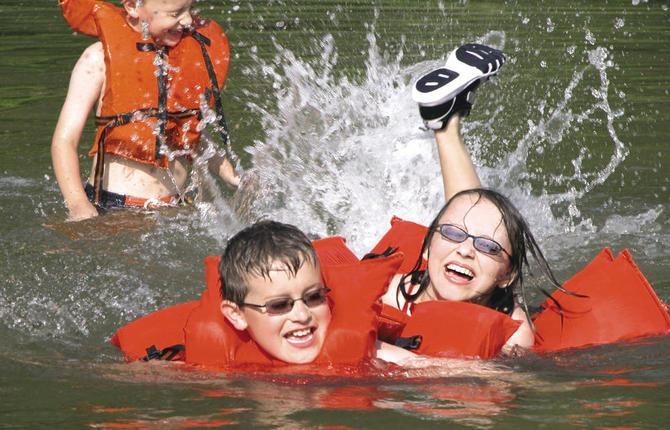
A camp you can trust
Over the past decade, 'trust' has been gaining special attention as one of the most important ingredients of family life, and it plays a critical role in ensuring and enhancing family peace of mind.
As if parents don't have enough to worry about, keeping their children safe at home, school, camp, and on the go, continues to rank at the top of every parent's list. Having others care for your child can be very stressful, and more so if you don't completely trust the caregiver or organization. Nanny cams or cameras in daycares have become more and more popular because of their proven effectiveness in identifying abusive nannies and babysitters. Peace of mind and confidence in childcare are reasons why some families opt to "spy" on their child's provider. Some parents feel compelled to monitor care providers so that they can know for sure how their children are faring.
More daycare centers are installing cameras and even provide parents with the ability to spot check and watch their child while they are at work. Some facilities provide parents with 'real-time' access to watch the happenings in their child's daycare. Parents report that while they don't often use it, it's comforting to know that they are able to log in and check on their child whenever they desire.
It really is all about trust and authenticity. The reality is that a trustworthy relationship, especially as it relates to childcare, is essential for peace of mind. Trust means you know beyond the shadow of a doubt that the truth is being told.
There are many times where parents must be reliant on others. Trust is the most important factor when making decisions about a paediatrician, nanny, school, camp, programs, dentist, etc… Trusting the people and organizations to whom and to which you are entrusting your children requires your total belief and confidence in them. In other words, as parents, you must feel assured that they are competent, reliable, compassionate, sincere and empathetic. You must be certain that they will accurately share relevant information, and that you can firmly rely on their capabilities, integrity, judgement, and character.
Speak to the director
Parents should be diligent in their research about camps, in order to have the comfort and reassurance that they have made the best possible choice. Simply choosing a camp based on a brochure or website is not enough. How should parents evaluate or measure whether or not they can trust the camp? The tricky part is that unquestioning trust and assurance is often based on inconclusive evidence. Trust is often based on past experience – knowing and believing in the honesty and reliability of the camp director, so parents should speak to other parents who have personal experience with the camp. Meeting, or at the very least, speaking with the camp director is critical.
Relating trust to camp
There are many ways to think about the meaning of trust as it relates to camp. Families must trust the camp to provide an environment for their child that is safe, secure, nurturing, welcoming, positive, age-appropriate, challenging and fun.
The environment speaks to children. They can tell if it is a place that is intended for them – the message that needs to be sent and 'heard' by the children and their parents is: "We care. Trust us".
It is fundamental that a good camp environment for children is safe psychologically as well as physically. Children know that they are in a safe place when their needs are met and when the administrators and counsellors – the leaders who work with and care for them – treat them with warmth and respect in their interactions with and behaviours toward them.
In a safe environment, children do not fear humiliation and/or rejection. They feel comfortable, secure and confident. They are encouraged to believe in themselves and their abilities. They feel that they can 'trust their environment' and thus have a positive sense of belonging.
When children know that the people and their surroundings are trustworthy, they can freely direct their energies into enjoying and using the setting which has been designed to help them develop, learn, and have fun.
Campers must feel that camp is such a place! They must feel comfortable that it provides them with opportunities to develop new skills, meet new friends, enhance their self-confidence and feel positive and excited.
The relationships that people form with each other provide the foundation for the camp experience. It is through these relationships that campers and staff learn about themselves and others. Interpersonal connections count!
Camper safety and security must be the camp director's and the staff's number one priority! They must continuously evaluate every aspect of the camp, including arrivals, departures, transportation, food safety, staff qualifications, fire prevention and record keeping. They must keep current with the newest developments in camp safety and operations.
'Trust' allows campers and camp staff to have meaningful relationships with each other. Parents must be confident that they have the ability to confide in the camp director, believing that that person is experienced and capable – trusting that they can depend upon him/her and knowing that what they believe to be true is true.
• Lynda Fishman, M.S.W. is owner and executive director of Adventure Valley Day Camp. Sara Weinberg, M.A. is the director of Early Childhood and Elementary Education at Concordia University.






